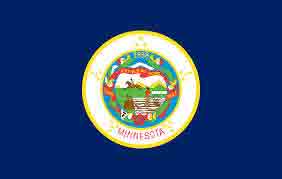Minnesota has played a key role in the investigation of the caramel apple Listeria outbreak. The 11-state outbreak, which has sickened 32 people killing six of them, includes four Minnesotans, two of whom died.
 Minnesota health officials were the first to identify brand names of caramel apples linked to the outbreak and make public the stores where they were sold. Those efforts have helped to unravel the mystery of a first-of-its-kind outbreak.
Minnesota health officials were the first to identify brand names of caramel apples linked to the outbreak and make public the stores where they were sold. Those efforts have helped to unravel the mystery of a first-of-its-kind outbreak.
Several weeks ago, the Centers for Disease Control and Prevention (CDC) discovered the outbreak through PulseNet, a national subtyping network of public health agencies that its coordinates. When patients are diagnosed with a foodborne bacterial infection, state health departments perform a DNA “fingerprinting” test, called pulsed-field gel electrophoresis (PFGE). These fingerprints are then shared on the Pulsenet network allowing health officials to identify outbreaks when they see matching fingerprints.
When caramel apples were mentioned by case patients in another state, health officials in Minnesota quickly re-interviewed their case patients who confirmed they had also eaten prepackaged, commercially prepared caramel apples before becoming ill. Then the Minnesota Department of Agriculture did a traceback investigation linking Kitchen Cravings and Carnival brand caramel apples sold at Cub Foods, Kwik Trip, and Mike’s Discount Foods to the outbreak.
Since then, Minnesota Department of Agriculture has added Happy Apples brand caramel apples to the list of caramel apples sold in Minnesota that may have been contaminated with Listeria, but they have not named stores where those apples were sold.
“We continue to work on identifying the source of the contamination so we can determine the extent of products affected,” an agriculture spokesman told Food Poisoning Bulletin.
Happy Apples issued a recall on December 24 because they were informed by apple supplier Bidart Brothers of Bakersfield, Calif. that the apples they used to make caramel apples, including those covered in nuts and candy, may have been contaminated with Listeria.
Happy Apples were sold at Safeway, Walmart and Sam’s Club stores. They may also have been sold at other stores in Alabama, Arizona, Arkansas, California, Colorado, Florida, Georgia, Hawaii, Illinois, Indiana, Iowa, Kansas, Louisiana, Massachusetts, Minnesota, Mississippi, Missouri, Montana, Nebraska, Nevada, New Mexico, North Carolina, Ohio, Oklahoma, Oregon, Pennsylvania, Tennessee, Texas, Utah, Washington and Wisconsin.
Symptoms of a Listeria infection can take as long as 70 after exposure to develop and include fever, chills, muscle aches, diarrhea and upset stomach. Anyone who has eaten a prepackaged, commercially prepared caramel apple within the last two months and is experiencing these symptoms should see a doctor.




